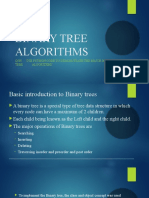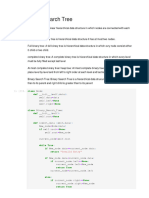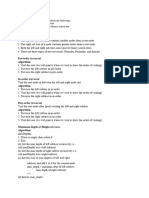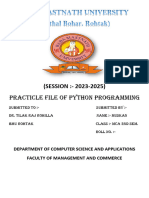0% found this document useful (0 votes)
29 views21 pagesData Structute MCA
The document contains programs to implement various data structures and algorithms. It includes programs for binary search tree operations like insert, delete and search. It also includes programs for sorting algorithms like merge sort, and graph algorithms like Prim's and Kruskal's for minimum spanning tree.
Uploaded by
100day100kCopyright
© © All Rights Reserved
We take content rights seriously. If you suspect this is your content, claim it here.
Available Formats
Download as PDF, TXT or read online on Scribd
0% found this document useful (0 votes)
29 views21 pagesData Structute MCA
The document contains programs to implement various data structures and algorithms. It includes programs for binary search tree operations like insert, delete and search. It also includes programs for sorting algorithms like merge sort, and graph algorithms like Prim's and Kruskal's for minimum spanning tree.
Uploaded by
100day100kCopyright
© © All Rights Reserved
We take content rights seriously. If you suspect this is your content, claim it here.
Available Formats
Download as PDF, TXT or read online on Scribd
/ 21




























































































